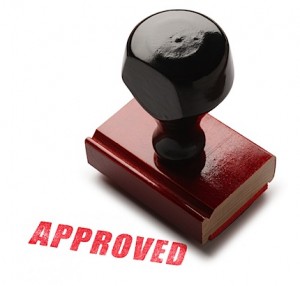Tag Archives: Credit History
Mortgage Underwriting: Understanding How It Works
Mortgage Underwriting is the process of verifying information about your employment, income, assets, debts, and credit history to determine if you can afford to pay back the mortgage loan you are applying for.
Mortgage Underwriters also verify that the size of the mortgage you’re applying for is reasonable compared to the value of the property you’re buying or refinancing.
 Sound underwriting helps ensure that you qualify for a mortgage loan that you can afford to repay and it gives lenders the confidence to make mortgage money available to people who want to buy or refinance a home.
Sound underwriting helps ensure that you qualify for a mortgage loan that you can afford to repay and it gives lenders the confidence to make mortgage money available to people who want to buy or refinance a home.
The Mortgage Underwriting process is basically divided into three parts:
1: Gathering and Verifying Your Information
Your lender, or your lender’s loan officer, collects and verifies your personal information, from your employment history to your outstanding debts.
You’ll be asked to give your lender permission to independently verify your information and obtain copies of your credit history.
Here’s a short list of the information you will need to begin underwriting your mortgage.
♦ Employment: You’ll be asked to document your current employment status and provide your job history, including the length and terms of employment.
♦ Income and Assets: Income is used to calculate the size of the mortgage you can responsibly afford and the size of the down payment you’ll need. Expect to provide proof of your primary income, such as copies of your W-2. You’ll also be asked to document other income sources and assets the underwriter may be able to use to evaluate your mortgage eligibility. Assets can include anything from bank accounts, retirement funds, investments and rental property, to your car.
♦ Debts: A list of your current debts – such as credit cards, auto loans, student loans – is needed to calculate your debt-to-income ratio. Underwriters use this ratio to determine if your available income will enable you to continue paying your outstanding debts and a new mortgage payment.
♦ Credit Report: Your credit report from independent credit bureaus (Experian, Equifax, and TransUnion) includes a record of your previous credit transactions … aka your credit history: plus a credit score based on proprietary formulas developed by the respective bureaus This information is used to help determine your creditworthiness and the likelihood that you’ll repay your mortgage.
(Experian, Equifax, and TransUnion) includes a record of your previous credit transactions … aka your credit history: plus a credit score based on proprietary formulas developed by the respective bureaus This information is used to help determine your creditworthiness and the likelihood that you’ll repay your mortgage.
 If you are looking to buy a new home, a Mortgage Pre-Approval is the smartest way to get into your new home. Call
If you are looking to buy a new home, a Mortgage Pre-Approval is the smartest way to get into your new home. Call 
You must be logged in to post a comment.